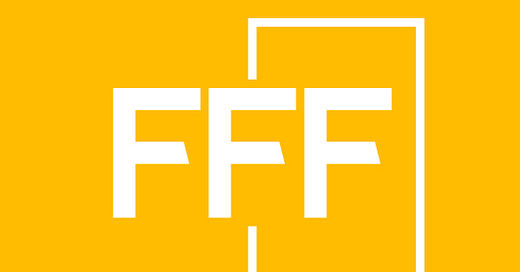Four For Friday | July 26, 2024
LF133 | Connecting capital to systems change, sleep capital, Open AI direct to your brain, Future You and a bonus AI feature, Tip of the Week
Welcome to Looking Forward’s Four For Friday. Four things that have piqued my interest this week, together with a new feature - AI Tip of The Week. Enjoy!
The missing link in systems change: coordinating capital
Most discussions of systems change give a role to a ‘backbone’ organization that coordinate the disparate players towards aligning and delivering on a common mission. However, this piece argues, most of these backbones lack a role that cultivate and coordinates the capital providers who are needed to scale innovations.
The paper identifies a number of issues with current financial products such as impact investors that are looking to make an impact, including:
Capital centricity. If you’re a $30m impact fund, you need opportunities that work with your fund size, regardless of whether it could take trillions of dollars to fix the system.
Single asset approach. Funders tend to invest in a single asset / company at a time, whereas systems change requires a portfolio of levers.
Systemic silos. Most investors don’t have a view of the whole system, but operate in one part of it and are unaware of the larger dynamics.
Impact ‘tunnel vision’. Focused on one specific outcome or impact, not necessarily the interconnectedness of them all.
It recommends a new role for strategic capital facilitation to act as an intermediary and connector between different types of capital and relevant project. Worth a read if you’re looking to unlock change at scale.
Sleep Capital
A new research study (behind a paywall unfortunately, but model presented below) that describes the concept of ‘sleep capital’, a new measure that “encompasses the quality and quantity of sleep as integral components that influence cognitive abilities, mental and brain health, and physical health, affecting workplace productivity, learning, decision-making, and overall economic performance”.
The idea that sleep impacts personal and societal social and economic health will resonate with folks with young kids (guilty), jetlag (doubly guilty), or just experiencing sleep disruption from time to time (pretty much all of us). This model looks at the Inputs of sleep, such as the drivers of a good night’s sleep (environment, jetlag, sleep debt, schedules etc) and connects them with their Outputs (brain and mental health, accidents, health issues, productivity and general performance).
[Note: from a personal perspective, I experience this as strong reinforcing negative loop - the worse I sleep, the more I crave everything that’s bad for me, and the cycle continues…]
Plugging OpenAI into the brain
An impressive startup working on brain-computer-interfaces, Synchron, has just launched a partnership with OpenAI.
The startup has raised over $100m to develop a minimally invasive medical device, similar to a heart stent, that creates a permanent brain implant, entered via a blood vessel. This is less invasive process than other brain computer interfaces, and has the potential to be a boon to sufferers from ALS among other conditions.

The OpenAI collaboration gives their thought-to-text tool ChatGPT functionality, making the job of picking concepts and ideas quicker and more intuitive. Check out the founder’s TED talk here.
Future You
A project by MIT allows you to see your ‘future you’, and then chat with that person, ideally helping you make better choices today as you think about the shape of your future life tomorrow.
Bonus - AI Tip of the Week
This video, delivered by an affable Swede (aren’t they all?) provides an accessible but fairly comprehensive explainer about Generative AI.
That’s all for this week. As always, feedback welcome. Feel free to share insights or links of interest.
- Stephen





